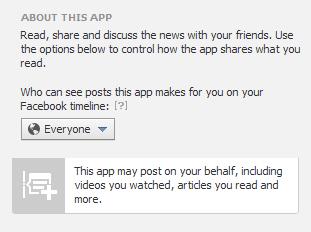 |
| Emma Way: Tweeter and Safe Driving Poster Girl |
Twenty-one year old Emma Way, who lives in the Norwich area, was driving sedately and safely to work, as is her usual habit:
Ironically, the cyclist – who, miraculously, escaped injury – wasn’t even going to report the accident until he saw the tweet and realized it was about him.
Let us, for the moment, ignore the laundry list of crimes this woman has admitted to, and the fact that—having grown up in the generation of The Tuesday Award and having every sort of competition she has heretofore been involved in the kind where there are no losers or winners—she has, naturally, adopted the opinion that it has to be someone else’s fault, and consider, instead, why on earth she tweeted this.
I’m guessing (because I am not a trained psychologist) that the cult of celebrity and the ubiquitous nature of social media have a lot to answer for on this one (added, of course, to the fact that she obviously was never taught to think). In the age of Reality TV, everyone is a star and everyone deserves their chance to be in the spotlight. Social media allows that, and provides a stage (albeit, a small one) where Everyman (and Everywoman) can strut their stuff.
Tweeting something shocking, clever, hilarious, informative, revolutionary or just plain silly can give you a few seconds on that social media stage, a chance to say, “Look at me, everybody! Aren’t I clever?” and bask in the resulting kudos. Using your phone to take a photo while aggressively tailgating someone and tweeting it is, therefore, social media currency. And a photo of your speedometer pegged at 95 tweeted, along with a hilarious caption, is social media gold.
Now, I can’t know what reaction Emma received from those tweets, but I doubt they were of the “Emma, don’t you realize that is dangerous and you could hurt someone, or yourself, doing those things” variety because, when she knocked a cyclist off his bike, her first impulse (I will not call it a “thought”) was to tweet it.
So she did, and she won the social media equivalent of the lottery: her tweet went viral and she became a star!
But, strangely, people were pointing fingers at her, and saying she was at fault and she couldn’t understand why everyone thought she did something wrong so she did what any media star would do: she hired a lawyer to spin the story and make it anyone else’s fault but her own. So Emma and her lawyer have appeared on television stating that it was the cyclist who hit her, and that social media was to blame for this simple (non-criminal) misunderstanding spiraling out of control and the print media for portraying her as some sort of bad person when she was clearly not responsible and she has, repeatedly, apologized for making the tweet and acknowledged that sending the tweet was a stupid thing to do.
Notice, however, that she has only apologized for the tweet, and admitted that sending it was stupid—but not wrong. Nowhere is there an apology or even an acknowledgement of the cyclist she hit, except to pin the blame on him. The apology is all about the tweet.
(Notice, also, her lawyer’s dress-sense. And, yes, he does, at one point, call her “poor Emma.”)
But tweeting is the Pavlovian Response of the Twitter Generation. Twitter has conditioned her (and untold millions like her) to immediately jump upon the global stage to share whatever minutiae has occurred in her life. Twitter effectively patter her head and said, “Good girl!” when she posted photos of her tailgating and speeding, so it would be hard to resist tweeting about causing a personal-injury accident and then leaving the scene. “It happened, therefore it must be tweeted,” is an instinct, not a conscious act; you can’t hold anyone responsible for an instinct.
And, without the tweet, she would not have been caught, so clearly it was the tweet that caused the trouble, and it was Twitter that caused her to tweet.
Therefore, it’s all Twitter’s fault; and that’s an argument I could get behind.







